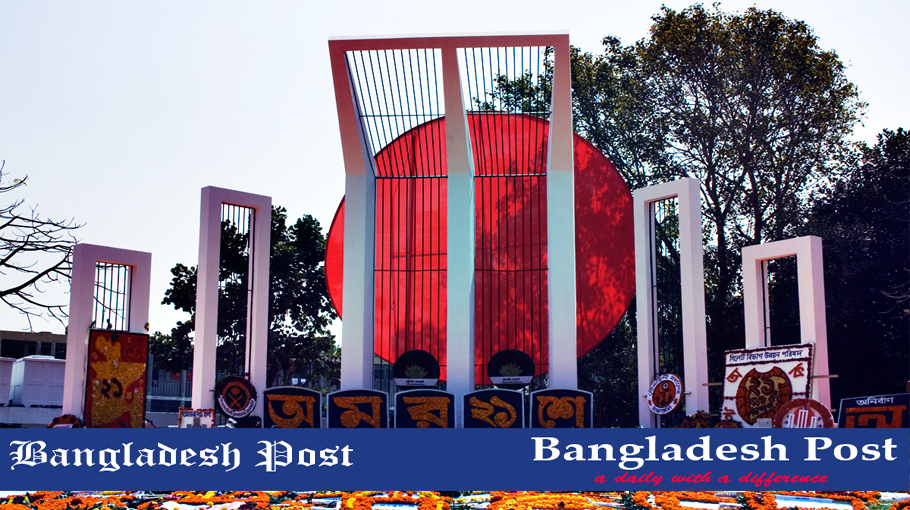International mother language day

International Mother Language Day is a global yearly event conducted on February 21st to raise awareness of linguistic and cultural diversity as well as multilingualism. UNESCO first proclaimed it on November 17, 1999. The United Nations General Assembly legally acknowledged it in 2002 with the ratification of a UN resolution.
Mother Language Day is part of a larger initiative launched by the United Nations General Assembly on May 16, 2007, to "promote the preservation and protection of all languages used by peoples around the world," as stated in a UN resolution that also designated 2008 as the International Year of Languages.
Bangladesh came up with the idea to commemorate International Mother Language Day. The day on which the people of Bangladesh (then East Pakistan) battled for the recognition of the Bangla language is commemorated on February 21. It is also observed in India's West Bengal state.
In 1999, UNESCO recognized February 21 to be International Mother Language Day. Since February 21, 2000, it has been observed all around the world. The declaration was made as a tribute to the Bangladeshi Language Movement (then the East Pakistanis).
Pakistan was divided into two geographically distinct areas when it was established in 1947: East Pakistan (now Bangladesh) and West Pakistan (currently known as Pakistan). In terms of culture and language, the two parts were diametrically opposed. India stood in the middle of the two halves, separating them.
Even though Bengali or Bangla was spoken by the majority of people in East Pakistan and West Pakistan, Pakistan's former government declared Urdu to be the country's sole national language in 1948. Because the majority of the population was from East Pakistan and their home tongue was Bangla, the people of East Pakistan revolted.
They urged that, in addition to Urdu, Bangla be included as one of the national languages. Dhirendranath Datta of East Pakistan was the first to make the demand in the Pakistan Constituent Assembly on February 23, 1948.
Pakistan's government forbade public meetings and demonstrations in order to put an end to the protests. Massive marches and meetings were organized by University of Dhaka students with the help of the general people.
Police fired fire on rallies on February 21, 1952. Hundreds of people were killed, including Abdus Salam, Abul Barkat, Rafiq Uddin Ahmed, Abdul Jabbar, and Shafiur Rahman. This was a once-in-a-lifetime event in which people gave their lives for their mother tongue.
Bangladeshis have commemorated International Mother Language Day as one of their tragic days since then. They pay a visit to the Shaheed Minar, a memorial established in remembrance of the martyrs, and its replicas to express their grief, respect, and thanks.
Bangladesh celebrates International Mother Language Day as a national holiday. Rafiqul Islam and Abdus Salam, Bengalis living in Vancouver, Canada, proposed the resolution. On January 9, 1998, they sent a letter to Kofi Annan, requesting that he take action to save the world's languages by designating an International Mother Language Day. To remember the 1952 killings in Dhaka during the Language Movement, Rafiq chose the date of February 21.
Rafiqul Islam's idea was introduced in the Bangladesh parliament, and the government of Bangladesh filed a formal submission to UNESCO in due course (at the request of Prime Minister Sheikh Hasina). Syed Muazzem Ali, then Bangladesh Ambassador to France and Permanent Representative to UNESCO, and Tozammel Tony Huq, his predecessor, who was then a Special Adviser to UNESCO Secretary General Federico Mayor, were in charge of shepherding the proposal through UNESCO's regulatory framework.
Finally, on November 17, 1999, UNESCO's 30th General Assembly unanimously decided that "the 21st of February be proclaimed International Mother Language Day throughout the world to remember the martyrs who gave their lives on this same day in 1952."
Bangladeshis decorate the Martyrs' Monument and its replicas with flowers to commemorate International Mother Language Day. It has been a national holiday in Iran since 1953, and it is also known as Shohid Dibosh (Martyr Day). The UNESCO General Conference declared 21 February to be International Mother Language Day on November 17, 1999.
Read More: The story behind International Mother Language Day
Bangladeshis have social gatherings to celebrate their language and culture, hold literary competitions, draw alpana on the streets, enjoy celebratory feasts, and listen to music. Ekushey Book Fair is held in Dhaka for the entire month of February by Bangla Academy.
If you liked this article, then please subscribe to Bangladesh Post YouTube channel for latest news. You can also find us on Twitter and Facebook.




